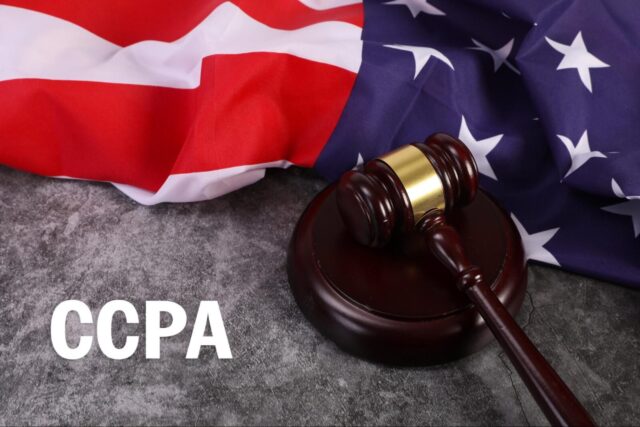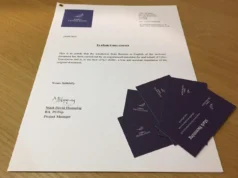
Tapping into online job postings can be a goldmine for recruitment agencies looking to find the perfect roles for their clients. However, while web scraping offers a host of advantages, it comes with its own set of complexities, especially around the legalities involved. As the internet sees a surge in job listings, with countries like the USA alone recording almost 6.9 million open positions in 2021, extracting this data in compliance with regulations becomes paramount. If you’re venturing into the realm of data extraction for job postings or looking to refine your existing methods, this guide will steer you through the best practices and legal intricacies you need to be aware of. Dive in to ensure you’re scraping job postings the right way!
Numerous vacancies are published worldwide on the internet. For example, in the USA alone, there were almost 6.9 million open positions as of 2021. Such a hefty number of unoccupied jobs makes it hard for recruiting firms to find promising vacancies for their clients. That’s why experts recommend recruiters scrape job postings to enhance the work-seeking process. Data extraction software allows for fast processing and sorting of loads of data. So, one increases their chances of discovering good positions for applicants they cooperate with by employing the mentioned apps.
You, however, should follow particular tips when extracting job postings. For instance, first, experts advise co-working merely with reputable data collection app developers. Only such specialists are able to create web scraping bots that meet your requirements and customize those applications properly. Also, you have to stick to current local legislation, as well as international privacy regulations, when mining online data. Let’s take a closer look at the latter subject, as it’s quite complex.
What Laws Should You Follow When Scraping Job Postings?
Initially, local legislation should be carefully learned. Some countries don’t have clear laws on data or personal info protection, though. In such cases, experts recommend following corresponding international regulations like the ones below.
What Legislature Is in Force in Europe?
The GDPR protects the privacy of EU citizens. According to Step 3 of this act, one may extract information from websites if they can prove their legal interest in data mining. Furthermore, you’re enabled to collect data from a site with this online platform’s consent. So, in the EU, recruiters are allowed to gain information from the subsequent internet sources:
- online job boards;
- social networks related to work-seeking (for example, XING);
- different portals for professionals in various industries that post vacancies.
Recruiting companies are advised to get formal authorizations from the mentioned website managers or owners to collect data to avoid any probable legal issues.
How the USA Regulates Job Offer Scraping
The California Consumer Privacy Act (CCPA) and the California Privacy Rights Act (CPRA) represent a significant shift in American privacy laws. While their jurisdictional base is California, their influence spans far beyond the Golden State’s borders. A crucial factor that bolstered their national importance is the landmark hiQ Labs v. LinkedIn case. In this case, a startup named hiQ Labs, which used public LinkedIn data to provide insights about workforce trends, found itself in a legal battle when LinkedIn tried to prevent them from scraping its data. This tussle between data access and user privacy culminated in a ruling by the Supreme Court, which resonated with the principles upheld by the CPRA.
The outcome was a beacon for data accessibility, signifying that if data is made public by the user, it can be collected, within specific bounds. However, the core of these regulations underscores the importance of the end-use of this data. For recruitment agencies, it’s a green light to mine online job postings, but with the essential caveat: the intent and use of the data should not infringe upon human rights or misuse personal data.
While the legal precedent provides some clarity, the world of data privacy is ever-evolving. Given the complexities and potential pitfalls, it’s wise for companies to seek guidance from legal experts specializing in data privacy. This ensures that the data collection aligns not only with the law’s letter but also with its spirit.
What Kind of Data Is Totally Prohibited From Scraping?
Recruiters should avoid collecting the subsequent content:
- passport, driver’s license, etc., scans;
- information about one’s sexual preferences, religious beliefs, and so on;
- home videos as well as family photos.
Finally, recruiting firms have to be careful when mining info from public registries. The point is that some countries allow you to view such registers but forbid extracting data from them.
When it comes to sensitive documents like passport and driver’s license scans, the reasons for caution are manifold. These personal identifiers are highly susceptible to misuse, leading to potential identity theft, fraud, or other malicious activities. It is both ethically and legally problematic for recruiters to access, store, or share such information without explicit consent or a clear legitimate purpose.
Additionally, data related to one’s sexual preferences, religious beliefs, and other personal aspects is classified as sensitive personal data under many privacy regulations globally. Extracting and processing such information without consent can lead to significant legal ramifications and damage a firm’s reputation. Besides, it’s crucial to acknowledge that such details bear no relevance to a person’s professional qualifications or job fit.
Home videos and family photos fall into a deeply personal category. Capturing or using such content can infringe on an individual’s privacy rights, leading to both ethical dilemmas and potential legal actions.
Furthermore, while public registries are accessible to many, they are not a free-for-all resource. The distinction between viewing and extracting data is vital. Some countries have stringent rules against data scraping from these registries, even if the information is publicly viewable. This is to prevent misuse and maintain the integrity of the data sources.













